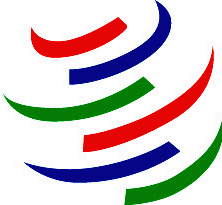Cuba Demands Doha Benefits for All
- Submitted by: admin
- Europe
- Havana
- Personalities
- Politics and Government
- 12 / 20 / 2007

Cuba demanded the General Council of the World Trade Organization on Wednesday that the Doha Round bring benefits to all, especially those traditionally dispossessed and neglected.
Developing nations barely represent a third part of world trade, despite growth achieved in the last few years, said Permanent Cuban Mission in Geneva's Counselor Minister Jorge Ferrer.
If we conclude the Doha Round with a bad agreement, unfair trade rules will prevail for years, maybe decades, he stressed.
The diplomat argued that developed countries continue opposing "silently, inflexibly or without commitment to several issues" of Third World interest.
We are concerned about documents seeking advantages presented jointly by the United States and European Communities with other nations, and their criteria about negotiations regarding services, trade of manufactured goods and environmental assets, he said.
Referring to the stance of the West in general, Ferrer noted "they talk about real, efficient tariff cuts in agriculture and industrial goods in our countries, but refuse to apply them to their multi-million dollar internal subsidies."
(PL)
Developing nations barely represent a third part of world trade, despite growth achieved in the last few years, said Permanent Cuban Mission in Geneva's Counselor Minister Jorge Ferrer.
If we conclude the Doha Round with a bad agreement, unfair trade rules will prevail for years, maybe decades, he stressed.
The diplomat argued that developed countries continue opposing "silently, inflexibly or without commitment to several issues" of Third World interest.
We are concerned about documents seeking advantages presented jointly by the United States and European Communities with other nations, and their criteria about negotiations regarding services, trade of manufactured goods and environmental assets, he said.
Referring to the stance of the West in general, Ferrer noted "they talk about real, efficient tariff cuts in agriculture and industrial goods in our countries, but refuse to apply them to their multi-million dollar internal subsidies."
(PL)
Comments